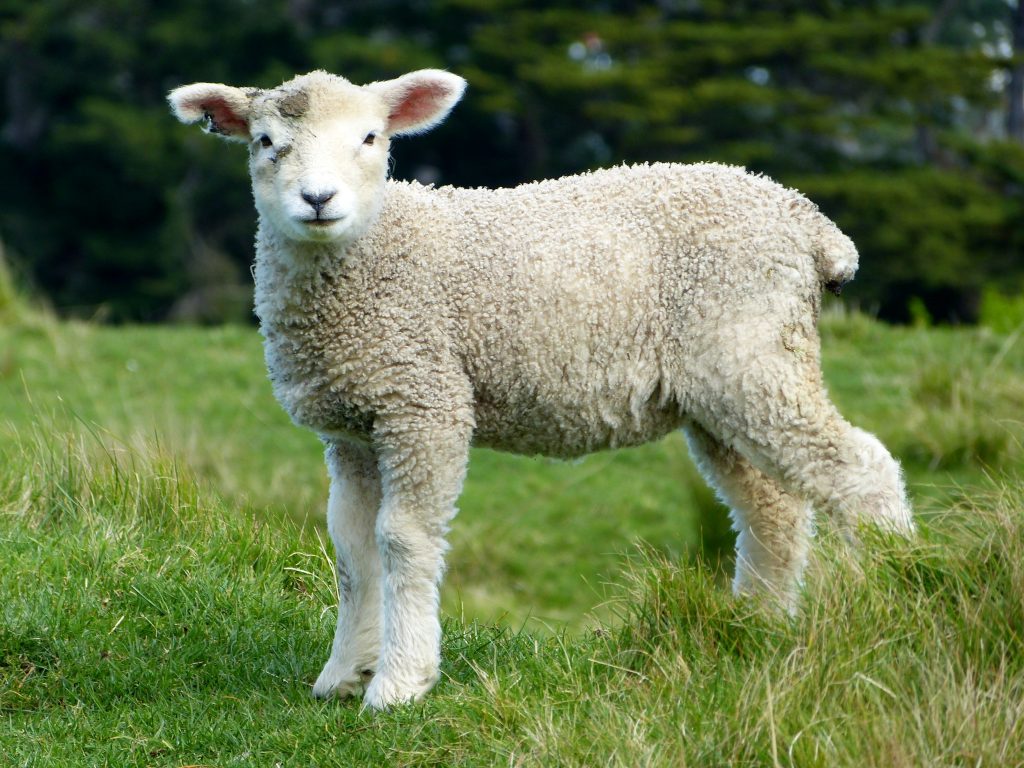Magnesium deficiency, also known as hypomagnesemia, is a condition that occurs when sheep do not have enough magnesium in their bodies. Magnesium is an essential mineral that plays a crucial role in many physiological processes, including muscle and nerve function, blood sugar regulation, and energy metabolism.
Symptoms of magnesium deficiency in sheep include:
- Loss of appetite and weight loss
- Nervousness and restlessness
- Muscle tremors and twitching
- Convulsions and seizures
- Increased heart rate
- Difficulty standing or walking
- Increased susceptibility to other health problems
In advanced cases, sheep may develop a condition called grass tetany, characterized by muscle spasms, convulsions and death.
Magnesium deficiency is more common in sheep that are grazing on grass that is low in magnesium, particularly during the spring when the grass is still low in nutrients. Sheep that are pregnant or lactating, stressed or undernourished are more susceptible to magnesium deficiency as well.
It is important to consult with a veterinarian if you suspect that a sheep may have a magnesium deficiency. The veterinarian will be able to diagnose the problem and recommend the appropriate treatment, which typically involves providing the sheep with a magnesium supplement or a diet that is higher in magnesium.
Loss of appetite and weight loss
Loss of appetite and weight loss are common symptoms of magnesium deficiency in sheep. Magnesium is essential for many physiological processes in the body, including muscle and nerve function, blood sugar regulation, and energy metabolism. When the body does not have enough magnesium, it can disrupt these processes and cause the sheep to lose its appetite and lose weight.
Loss of appetite can also be caused by other conditions, such as dental problems, worms, or other health issues, it’s important to have a veterinarian check the animal to rule out other causes.
In addition to loss of appetite and weight loss, other symptoms of magnesium deficiency in sheep include nervousness and restlessness, muscle tremors and twitching, convulsions and seizures, increased heart rate, difficulty standing or walking, and increased susceptibility to other health problems. These symptoms can be severe and even fatal if the deficiency is not treated in time.
Nervousness and restlessness
Yes, nervousness and restlessness are common symptoms of magnesium deficiency in sheep. Magnesium plays a crucial role in maintaining normal nerve function and muscle relaxation. When the body does not have enough magnesium, it can disrupt these processes and cause the sheep to become nervous and restless.
The symptoms of nervousness and restlessness may also be caused by other conditions, such as stress, pain or other health issues. It’s important to have a veterinarian check the animal to rule out other causes.
If you suspect that your sheep may have a magnesium deficiency, it is important to consult with a veterinarian as soon as possible. The veterinarian will be able to diagnose the problem and recommend the appropriate treatment, which typically involves providing the sheep with a magnesium supplement or a diet that is higher in magnesium.
Muscle tremors and twitching
Yes, muscle tremors and twitching are common symptoms of magnesium deficiency in sheep. Magnesium plays a crucial role in maintaining normal muscle function and relaxation. When the body does not have enough magnesium, it can disrupt these processes and cause the sheep to experience muscle tremors and twitching.
The symptoms of muscle tremors and twitching may also be caused by other conditions, such as stress, pain, or other health issues. It’s important to have a veterinarian check the animal to rule out other causes.
Symptoms of magnesium deficiency in sheep can vary depending on the severity of the deficiency and how long it has been present. In addition to muscle tremors and twitching, other symptoms include nervousness and restlessness, convulsions and seizures, increased heart rate, difficulty standing or walking, loss of appetite and weight loss, and increased susceptibility to other health problems. These symptoms can be severe and even fatal if the deficiency is not treated in time.
Increased susceptibility to other health problems
Yes, magnesium deficiency in sheep can increase their susceptibility to other health problems. Magnesium is an essential mineral that plays a crucial role in many physiological processes in the body, including muscle and nerve function, blood sugar regulation, and energy metabolism. When the body does not have enough magnesium, it can disrupt these processes and make the sheep more susceptible to other health issues.
For example, magnesium deficiency can make sheep more susceptible to grass tetany, a condition characterized by muscle spasms, convulsions, and death. It is more common in sheep that are grazing on grass that is low in magnesium, particularly during the spring when the grass is still low in nutrients. Sheep that are pregnant or lactating, stressed or undernourished are more susceptible to magnesium deficiency as well.
Magnesium deficiency can also weaken the immune system, making the sheep more susceptible to infections, parasites and other health issues.
It is important to consult with a veterinarian if you suspect that a sheep may have a magnesium deficiency. The veterinarian will be able to diagnose the problem and recommend the appropriate treatment, which typically involves providing the sheep with a magnesium supplement or a diet that is higher in magnesium.
